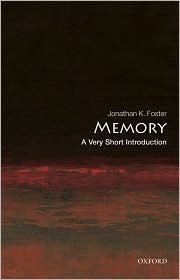More on this book
Kindle Notes & Highlights
Five senses; an incurably abstract intellect; a haphazardly selective memory; a set of preconceptions and assumptions so numerous that I can never examine more than minority of them – never become conscious of them all. How much of total reality can such an apparatus let through?
Ebbinghaus noted that the rate of forgetting was roughly exponential: that is, forgetting is rapid at first
Another interesting feature of memory noted by Ebbinghaus is that, having ‘lost’ information such as some of your French vocabulary, you can relearn this information much faster than someone who has never learned French in the first place (i.e. the concept of ‘savings’). This finding implies that there must be a residual trace of this ‘lost’ information in your brain.
‘Education is what survives when what has been learnt has been forgotten.’ We might add ‘… consciously forgotten but retained in some other residual form’.
Bartlett referred to this key characteristic of memory as ‘reconstructive’, as opposed to ‘reproductive’.
is more accurate to regard our memory as an activity rather than as a thing. Furthermore,
receives information from the senses and holds it for about a second while we decide what to attend to.
one’s memory span – i.e. the number of words that one can hear and then repeat back without error – is a function of the length of time that it takes to say the words.
This ‘remember’/‘know’ distinction was first used by Endel Tulving.


